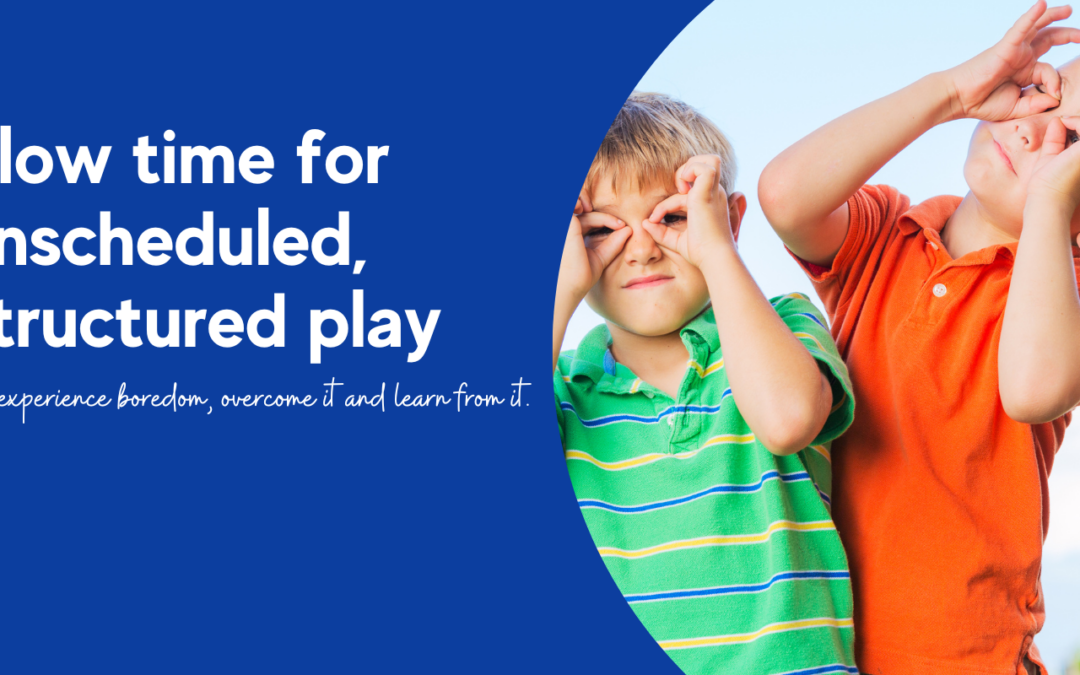Allow time for unscheduled, unstructured play
“I’m borrrrred.”
The word can stretch out in a whine that implies that this is the worst fate imaginable. Over the last generation, children’s lives have become busier and more scheduled, and childhood moves at a faster pace than ever.
Extracurricular activities have many benefits for children, from learning teamwork or leadership to developing a lifelong skills or hobby. Involvement in organized activities can lead to better grades and higher self-confidence.
However, when children become used to having full schedules, they are often unsure of how to cope during those times when there is seemingly nothing to do. Well-meaning parents may come to the rescue with yet more pre-planned activities.
Boredom should be seen, not as a problem for parents to solve, but as an opportunity for children to explore their own interests, to be creative and develop their imaginations.
Over the last number of years, TV, video games, computers and phones have increasingly become fillers for downtime.
Various studies have shown that school-aged children may spend eight or more hours a day in front of a screen. It has become common for everyone, from small children to adults, to turn to a screen to conquer boredom.
When this takes over time that could be spent being active, it becomes a very unhealthy habit. Set limits on screen time in your home and give children a chance to unplug and just play.
To help your child learn to defeat boredom on is own, start by asking him to come up with a list of things he could do when bored. For example: write a story or start a journal, draw, paint or sculpt with clay, reorganize his bedroom, make up an obstacle course in the house or outside, invent a board game, run laps in the back yard, and so on.
It is important that the list be made up of ideas your child has chosen, that have been parent approved. When he announces that he is bored, you can direct him to the list.
It is not a parent’s responsibility to keep a child constantly entertained. Time management is an important skill to master, and learning to fill unstructured periods of time is excellent practice.
Let kids be kids. They will gravitate towards what they enjoy. Remember that every moment does not need to be filled with meaningful activity. If you child wants to lie on the ground and watch the clouds, that is fine.
Don’t try to rescue your child from boredom. Let her experience it, overcome it and learn from it.

